There are dog persons and there are cat persons, and sometimes they meet and they find themselves in a pickle – who gets to keep their pet and who doesn’t?
Or maybe it’s the little one who’s been bugging you for months now – ‘Mom, can we get a dog, please, please, please?’
Is it doable, can you keep both animals without having them fighting like, well, cats and dogs? The answer is yes, certainly you can, and, just to be on the safe side here are the best dogs for cats.
Table of Contents
Best Dogs For Cats
Basset Hound
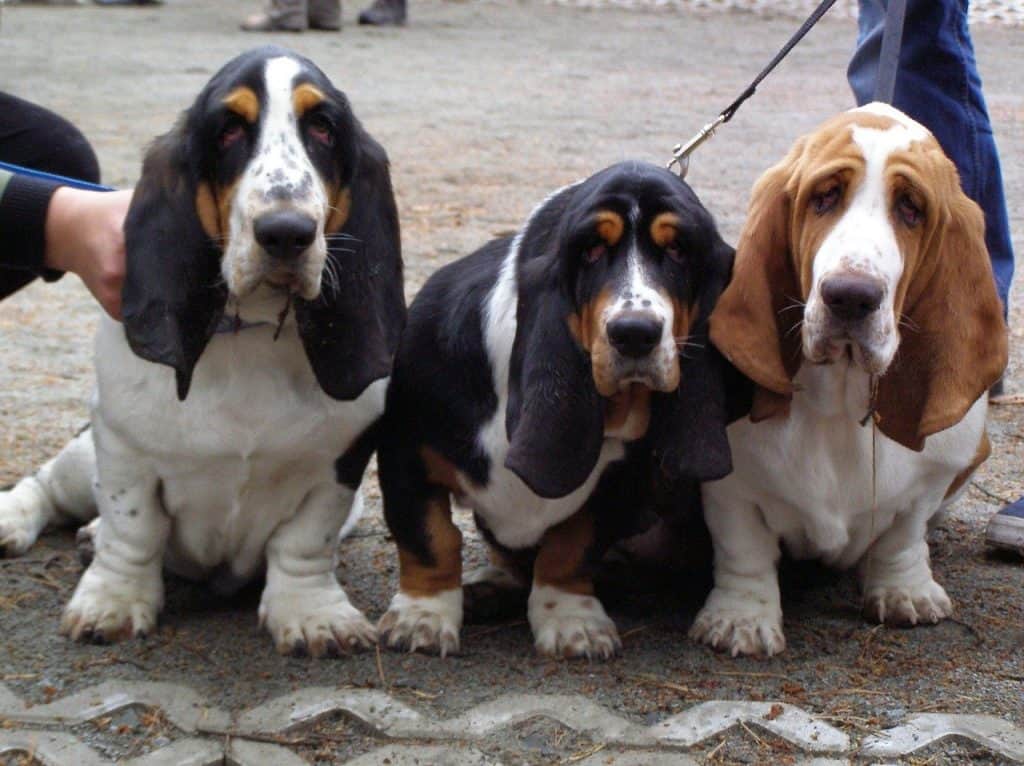
Amicable and easily-adaptable, Basset Hounds are basically big dogs on short legs and they tend to behave like the equally small-sized lap dogs and cozy up beside you.
Originally they were hunting dogs, but they’re actually very laid-back and would spend much of their time lazying around if you allow them.
Basset Hounds are pack-dogs and, if properly introduced to their new pack, they’ll get along just fine with everyone, kids and cats included.
If your cat is somewhat older and set in her ways, don’t be surprised if you come back home to find them sleeping peacefully, each in their own corner.
Basset Hounds make excellent pets for people who’ve never had a dog before as they are low-maintenance and typically calm.
The only part that you’ll find a bit challenging is training, as they tend to be a little strong-headed. Start training them when they’re very young using positive reinforcement and bribe them with treats.
Since they’re pretty lazy, Basset Hounds will adapt very well to life in an apartment, but don’t forget they need regular exercise as they are prone to obesity.
Beagle
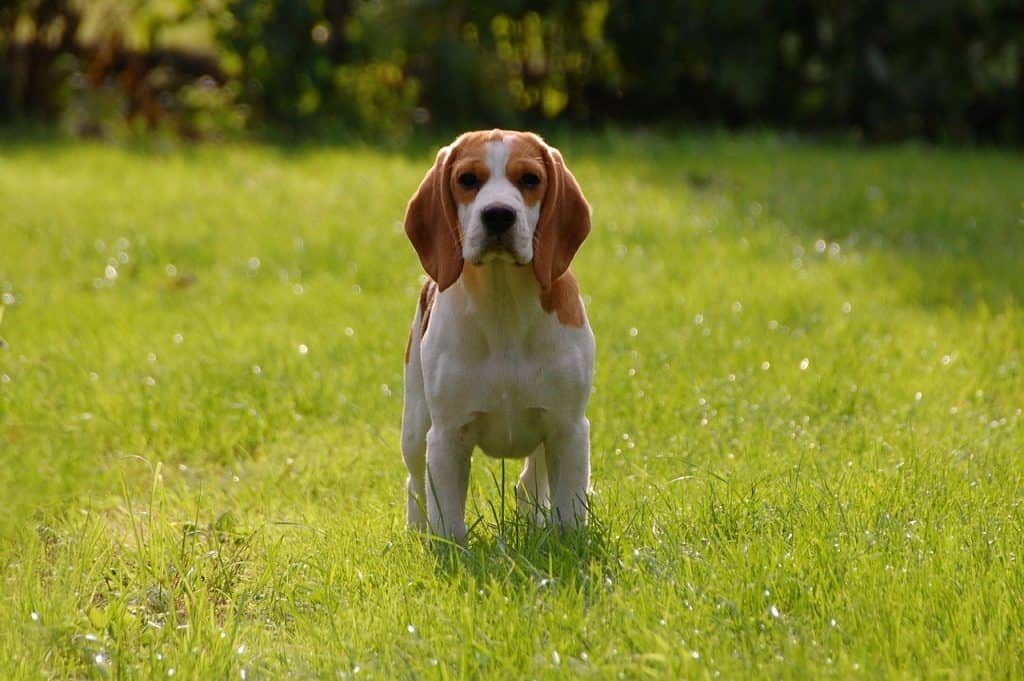
Although they’re hound dogs and hard-wired to chase, Beagles can easily share a house with a pet of the feline persuasion. That’s because they’re merry and fun-loving and enjoy being part of a family.
Yes, they would follow an interesting scent no matter what, but once they get used to the cat’s smell, they’ll leave her alone and find other ways to entertain themselves.
One thing that makes them adapt easily to another pet living under the same roof is that they hate being left alone. Rather than be bored staring at the walls, they’ll be glad for the cat’s company when you’re at work.
Actually, it might be best to keep your Beagle inside when you leave the house, as left in the yard he might be tempted to try to escape, desperate to follow an intriguing scent.
Beagles are very intelligent, but a bit stubborn so make sure to focus on their training as soon as they set paw into your home.
Bichon Frise
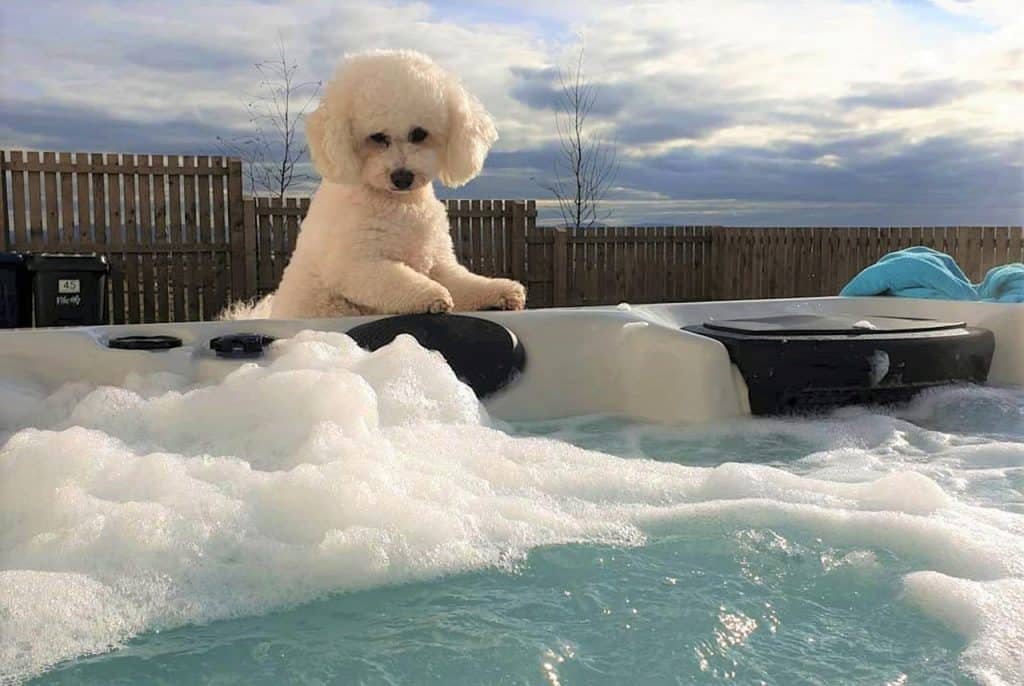
The only problem you might have when introducing such a friendly dog as a Bichon Frise to your resident pet cat is that he might be too friendly.
Having a Bichon Frise around is guaranteed to be a lot of fun, and an older cat might find the young pup a bit overactive, but give them a little time and you’ll find them getting along together just fine.
Small by nature, Bichons tend to treat cats as just another type of dog, a bit weird, perhaps, while cats can tell they have nothing to fear from the little ball of fur so they’ll learn to tolerate the puppy’s antics.
Another thing to keep in mind is that Bichon Frises are attention-seeking dogs and might get a bit jealous if they see you lavishing more attention on the cat.
Fitting them both in your lap might be a bit excessive, but how about having two pillows on the couch so they can both be near you?
Boxer
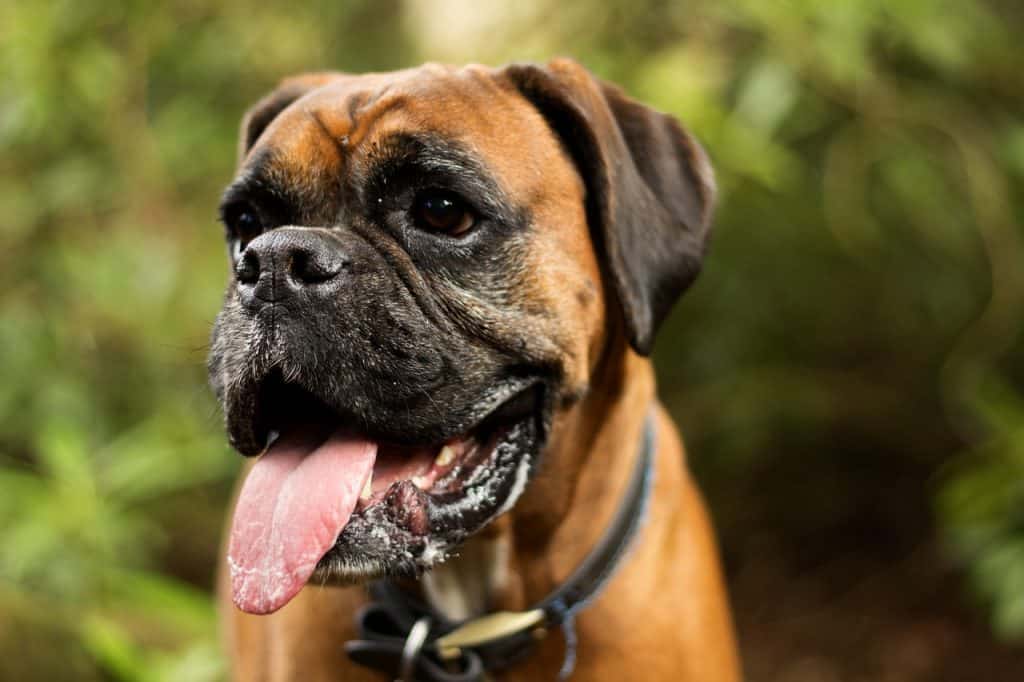
A boxer being best pals with a cat, who would have thought? People tend to assume big strong dogs cannot live peacefully with cats, but Boxers, despite their impressive appearance have a heart of gold.
Boxers are loyal and friendly, and really quite playful. One thing they have in common with cats is that they don’t care much for the great outdoors, not on a cold winter day and especially not on a hot summer day.
That’s because they’re short-nosed and have a short coat, which means they do not tolerate well extreme temperatures. Instead of going out, Boxers would much rather lie around or play with the kids.
Keep in mind that Boxers have the longest puppyhood in the dogs’ world and don’t become fully mature until they reach three years of age, so don’t expect them to behave like grown-ups before that.
If they’re raised with a cat they’ll learn she’s a part of the family and treats her with all due respect, but, on the other hand, be careful when introducing a little kitty to a full-grown Boxer as she might find him a bit intimidating.
Bulldog
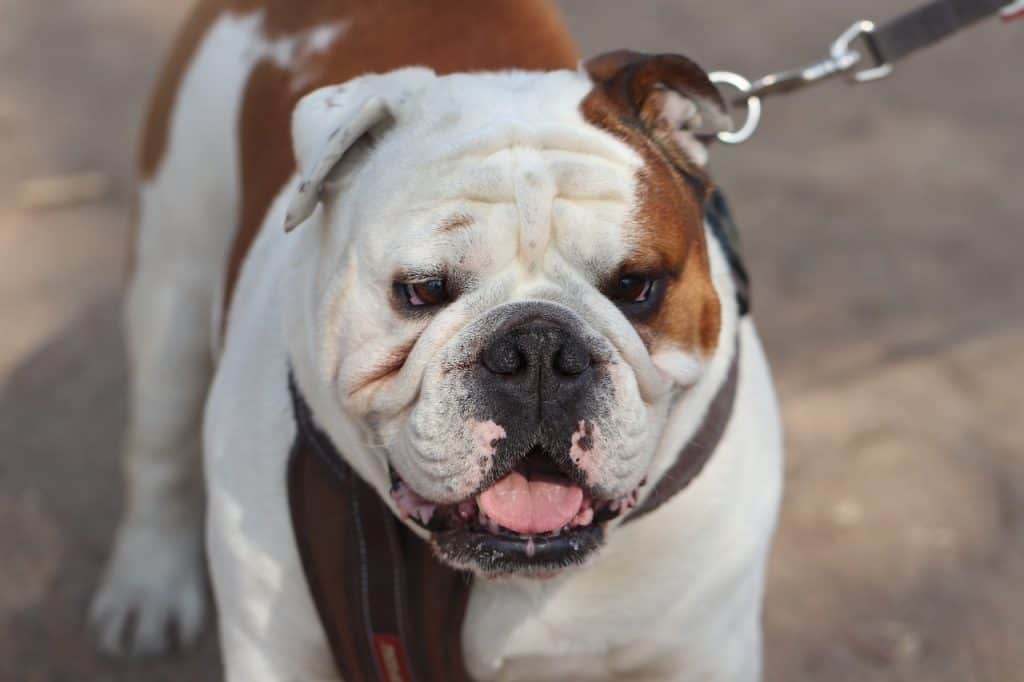
Maybe it’s the loose skin on their heads that makes them look like they’re always frowning, but Bulldogs certainly do not deserve their reputation of being grumpy.
Looks are totally deceiving as far as Bulldogs are concerned as they are gentle animals and very affectionate with their family, including cats.
When you hear a Bulldog growling, it’s not that they’re aggressive, they’re protecting their family and their home. Bulldogs go well with cats, as they love nothing more than taking a nap on the couch.
Yes, they can be quite energetic at times and they certainly need regular exercise, but after a long walk around the neighborhood, your Bulldog will be like ‘Gee, I’m exhausted, I need to lie down for a bit. Hey, cat, move over, will you?’
Bulldogs are well-suited for life in an apartment and since they’re easy-going and low-maintenance they’re good for novice owners.
Cavalier King Charles Spaniel
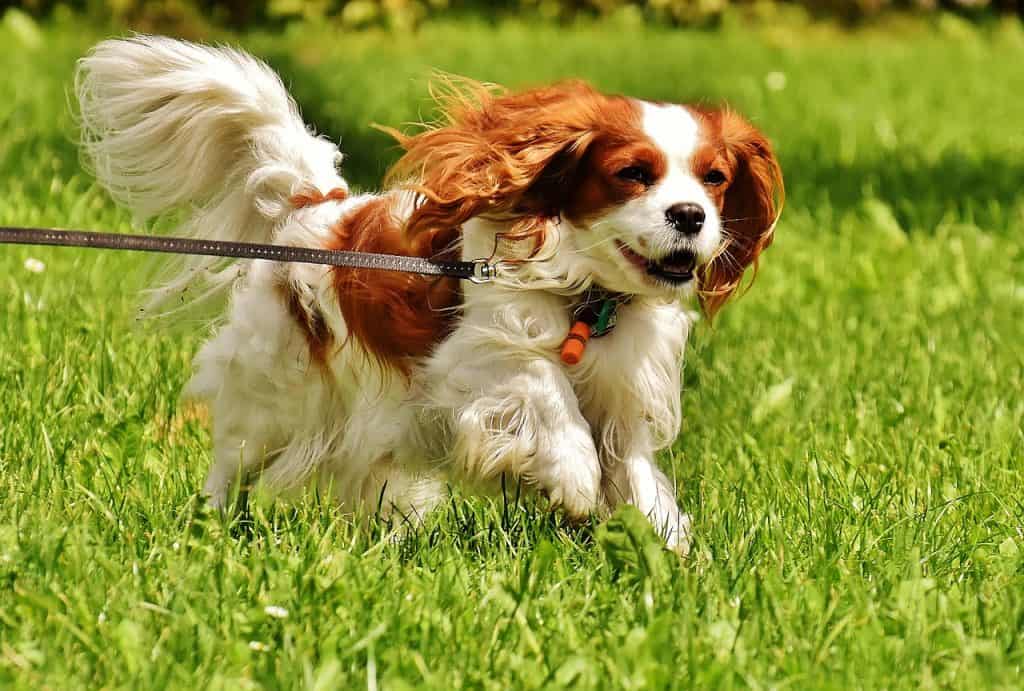
Who can resist a Cavalier King Charles Spaniel?
Those loving round eyes and the funny faces they make are enough to melt any heart, including a cat’s heart.
Not that there’s much need to win over the cat. No self-respecting cat will find a small little thing like a Cavalier threatening in the least.
For his part, a Cavalier King Charles Spaniel is very friendly and will do his very best to win over the cat and make her his playmate.
Although he looks like the typical toy dog, a Cavalier has kept all the hunting instincts of his spaniel ancestors.
He enjoys a good chase and will probably chase the cat too, but just for fun, so you won’t have any problems there.
You might run into some sibling rivalry between your cat and dog, as Cavaliers love a good belly-rub and do not appreciate being ignored.
But in a large family with plenty of humans to go around each will find someone to give them some love and affection.
Collie
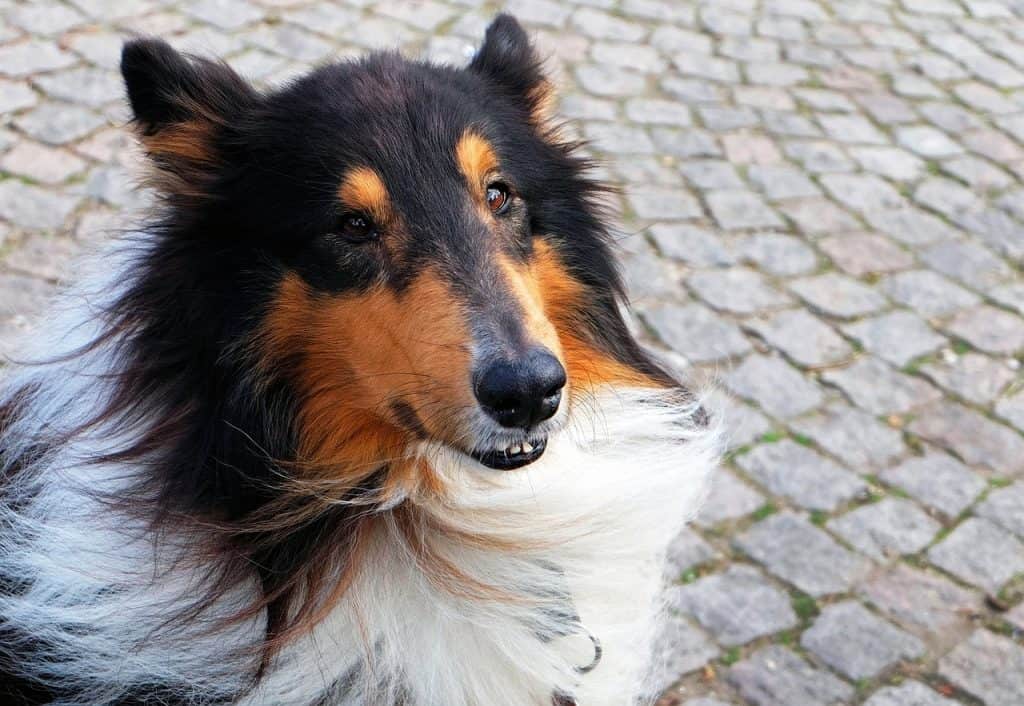
They say a herding dog never loses his instincts, even after many generations of quiet house life, and this is what makes Collies such wonderful pets.
Well, maybe they don’t herd for humans as much as they used to do back in the day, they’re still very loyal and affectionate.
And they make no distinction between two-legged creatures and four-legged ones. If the cat is part of the family, a Collie will treat her as such.
They’re affection and care for children is legendary, but Collies have been known to be very protective not only of the cats in the family, but also of other creatures like baby rabbits, chicks, or even goats.
Collies are very intelligent and easy to train, which makes it even easier to ensure they get on to a good start with your cat, or cats, the more the merrier, at least for a good herding dog.
Collies are not aggressive, but they will be on their guard if they see a stranger approaching anyone in their family.
Cocker Spaniel
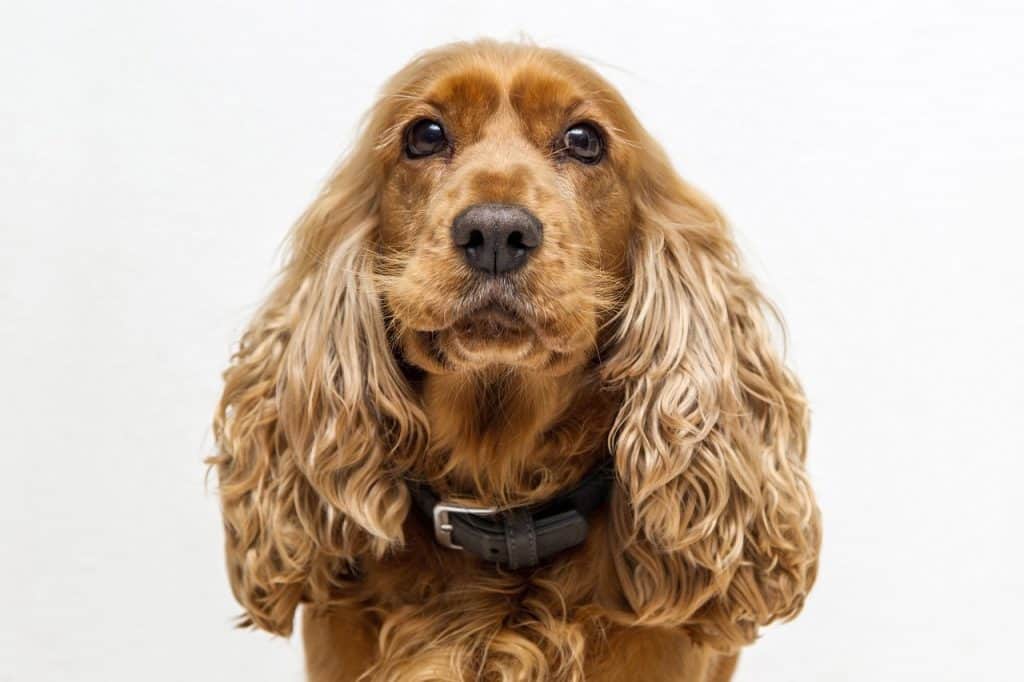
Probably the smallest breed in the sporting dogs’ family, Cocker Spaniels are gentle and very loyal to their families and will treat a cat as just another member of the gang.
Sometimes, a Cocker Spaniel will get along with the cat better than he does with the kids.
Spaniels love kids, but they’re also highly sensitive dogs and therefore you should always supervise any direct interaction between your new pet and young children who sometimes like to play it rough.
Cats, on the other hand, are more independent and more likely to leave the dog alone so they won’t have a problem living under the same roof.
One thing cats and Cocker Spaniels have in common is curiosity, they both like to explore and stick their nose everywhere, so pray they don’t decide to raid the pantry together.
Cocker Spaniels are great for novice pet owners as they’re highly trainable, and they can easily adapt to living in an apartment, although they do need regular physical exercise.
German Shepherd
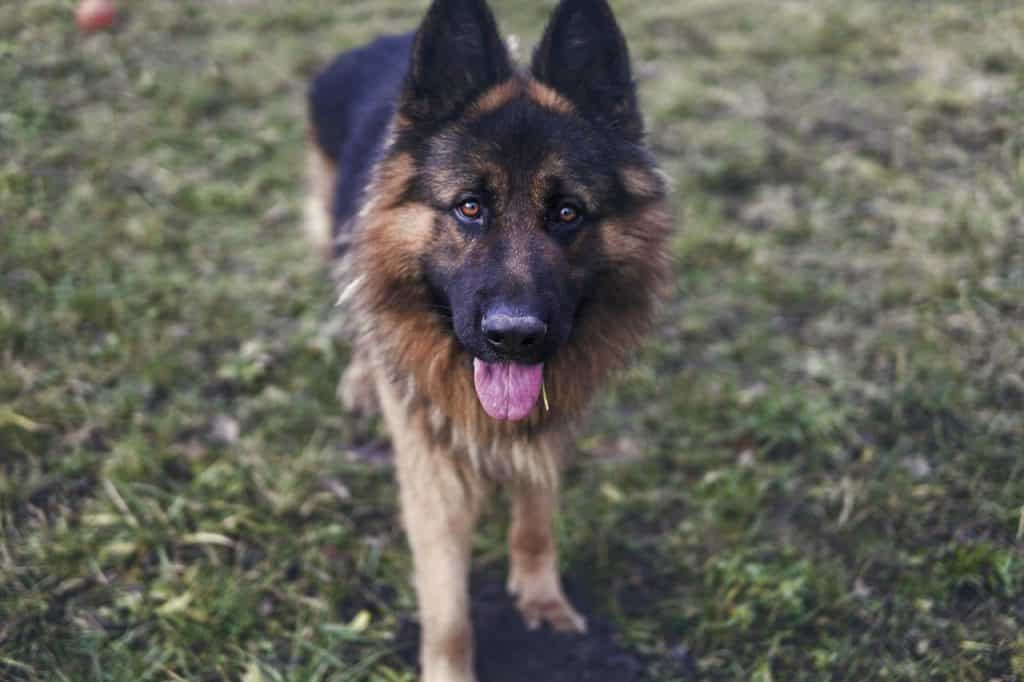
The giant with a heart of gold. Despite their impressive build, German Shepherds are very sensitive dogs and can form very strong bonds with their owners.
They’re far more friendly to strangers than you would expect and get along well with cats. Actually, a German Shepherd would much rather share the same house with a cat than with another dog.
German Shepherds are excellent protection dogs and very territorial, they will watch over the house and drive a stranger away if need be, but those who are part of the household, felines included, are OK by a German Shepherd’s book.
German Shepherds are among the most intelligent dogs so they won’t need much explaining once you introduce the cat as part of the family.
At the same time, large as they may be, German Shepherds don’t like to be left alone too much so they will welcome some company, even if this means a feline.
Golden Retriever
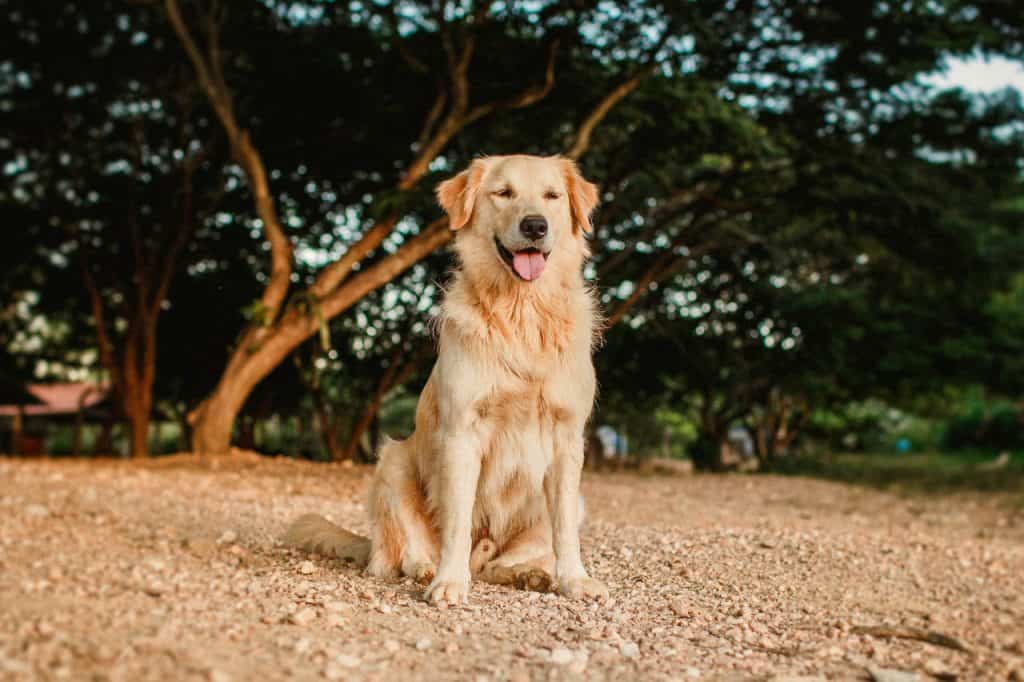
Golden Retrievers are among the most popular pet dogs in the US and for good reason. It’s not just the looks, that lustrous shiny coat of theirs that makes them so popular, but also their intelligence and friendly personality.
Golden Retrievers were bred as working dogs and getting along with humans was a necessary trait, which they have kept to this day.
They’re very tolerant of people and animals alike, so they will be on their best terms with pet cats.
Like with all other dogs, the key to having a well-rounded sweet-natured dog is early training and proper socialization.
Golden Retrievers are very bright dogs and easy to train. They’re eager to please their owners, it’s part of their heritage.
If you already have a cat, make sure to introduce the puppy properly and teach him not to bother the cat when the cat doesn’t want to be bothered.
Well, the cat can teach this important lesson to a pup quite easily, but she’ll appreciate some manners in the new dog.
Labrador Retriever
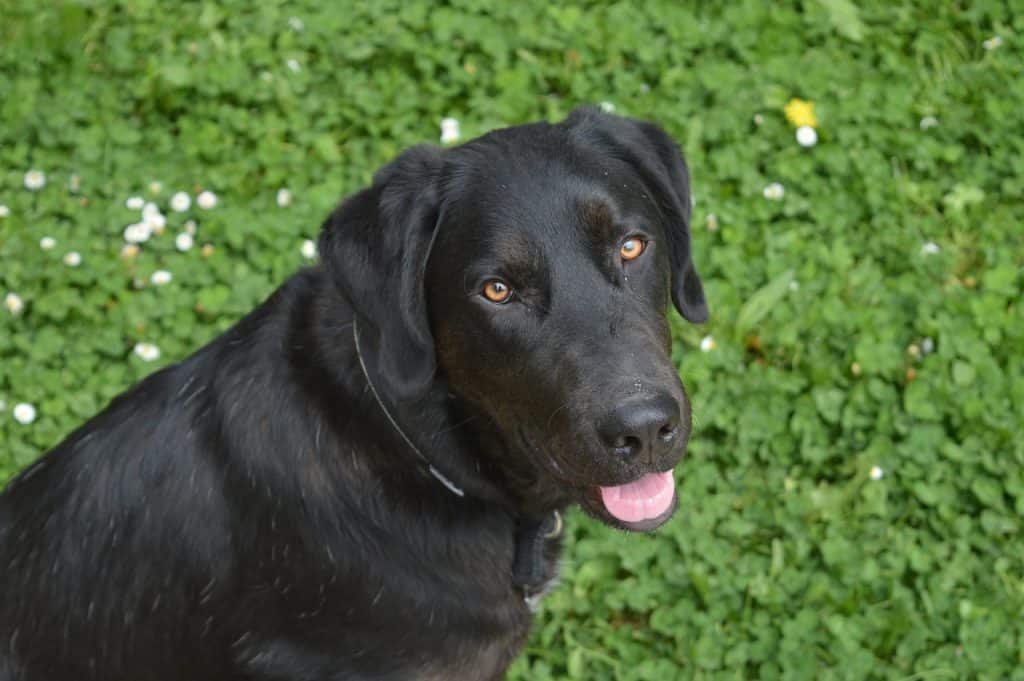
Labrador Retrievers have a reputation of being perhaps the most sweet-natured dogs in the world and you will be more than happy with the joy such a wonderful dog brings into your house.
They are very intelligent and affectionate, so they’ll get along splendidly with every member of the family.
They won’t ever bother the cat and they will surely enjoy a friendly chase, but, given the option, they’re going to spend most of the time around kids, as they love playing.
Although very easy-going, keep in mind that these dogs grow quite big and are very energetic, so don’t assume you don’t need to bother with training.
Make sure to provide plenty of exercise to your new Labrador and give the chance to befriend other dogs as well.
Young Labrador Retrievers are very mouthy and love to chew so make sure they get their own toys rather than have them steal from the cat!
Maltese
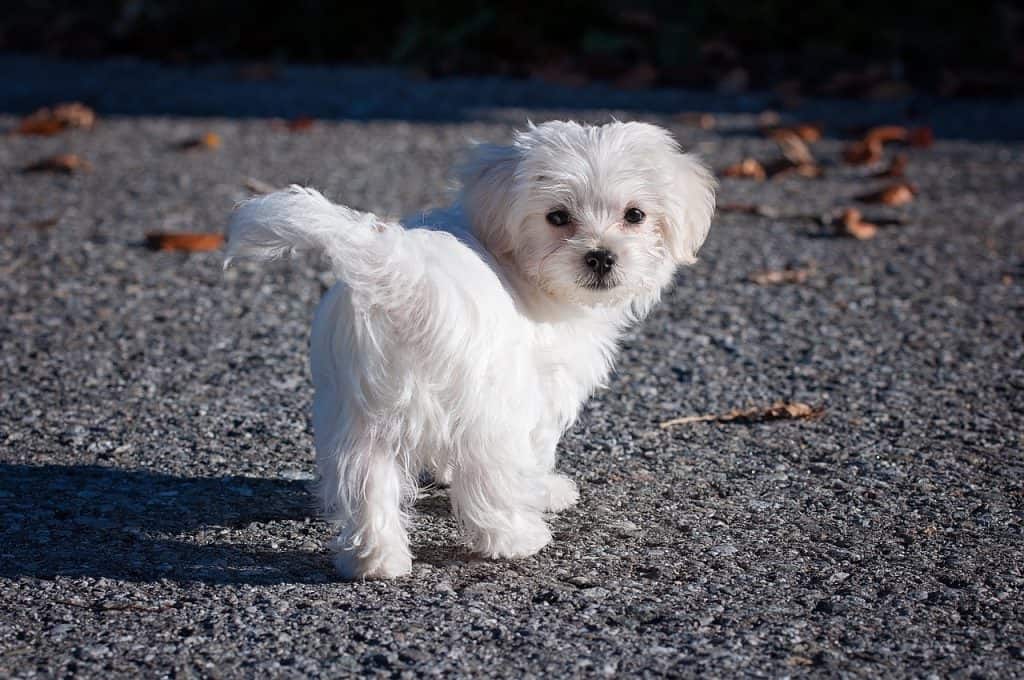
This cute little toy dog has a sweet trusting nature and tends to treat anyone, human, cat, or dog as a friend, at least until proven otherwise.
Maltese dogs are excellent pets for first-time dog owners as they are generally low-maintenance and highly trainable.
They have a lot in common with cats, not just the diminutive size but also their personality. Maltese love to be pampered and will gladly lie down on the couch for a long nap.
They’re willful and always try to get their way, and usually succeed, but since they have you to spoil them, they won’t bother the cat.
They probably know that a cat cannot compare to them and their beautiful long coat, and you cannot really blame a Maltese for that, as this breed is indeed gorgeous.
Being bred as companion dogs, Maltese crave human attention and do not like to be left alone in the house, so they’ll find a good companion in the family cat.
Shetland Sheepdog
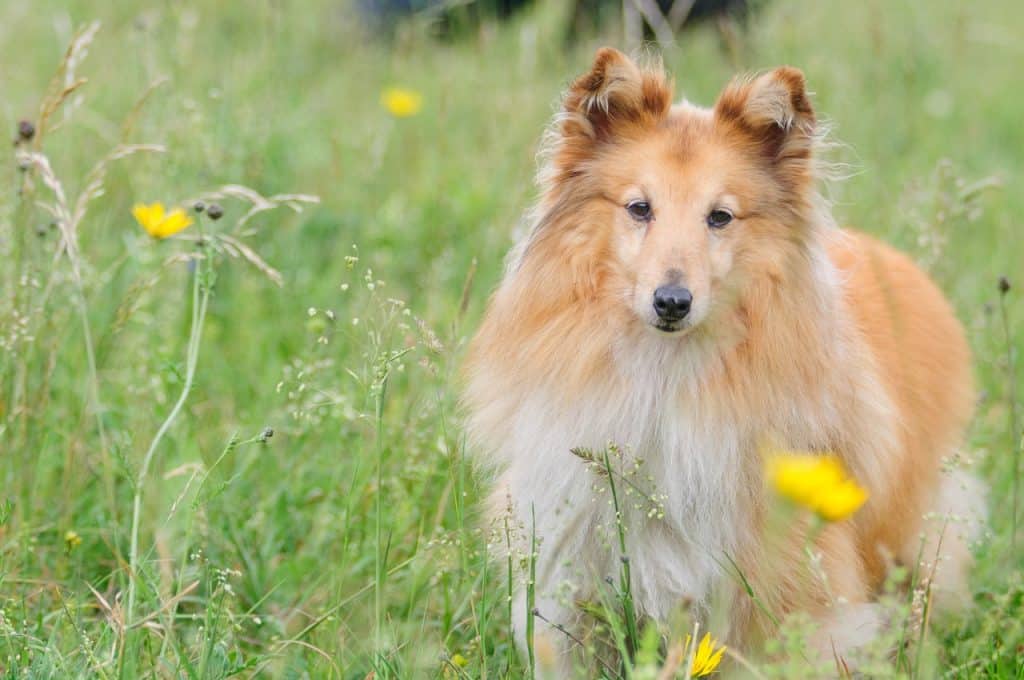
Shelties are very affectionate and extremely protective of their family. It’s in their nature as herding dogs to be always on their guard.
Your family, the children, and other pets will be perfectly safe with a Sheltie around, just keep in mind that powerful herding instinct.
Shelties will bark and maybe nip a bit when trying to herd the kids, the chicks in the yard or even the cat.
Chances are your cat won’t appreciate that, but don’t worry, she’ll let him know he needs to mind his own business!
Although natural, try to curb this enthusiasm for herding anything that moves early on. On the other hand, if you have ducks or goats in the yard, Shelties will be more than happy to look after them.
If you do decide to get yourself a Sheltie, do remember that dogs in this breed are used to hard work and they need plenty of physical activity as well as mental stimulation.
Pomeranian
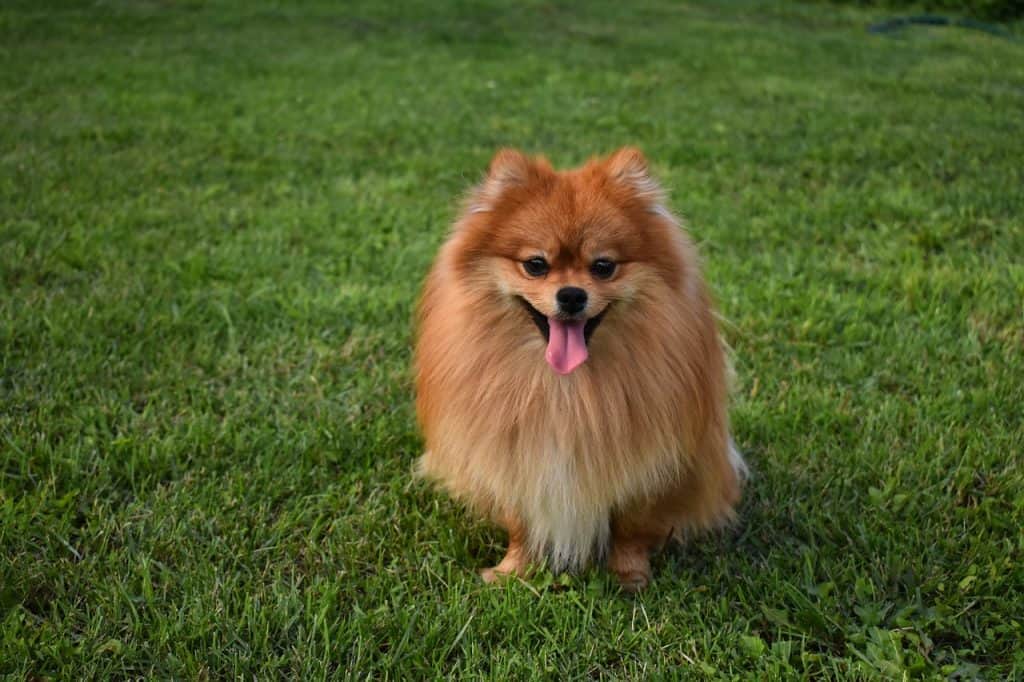
Most toy dogs get along well with cats and Pomeranians are no exception.
Since it might very well be that your Pomeranian pup weighs less than the tabby, you’ll probably have to worry if the cat will treat the new dog well.
Well, you don’t have to worry about that because small as they are, Pomeranians are very feisty and bold, perhaps too bold for their own good some might say.
Pomeranians are very smart, but you’ll have to be firm with their training as they’re a bit strong-willed. Fortunately, they like to learn new tricks and show off, which will certainly make training them easier.
Dachshund
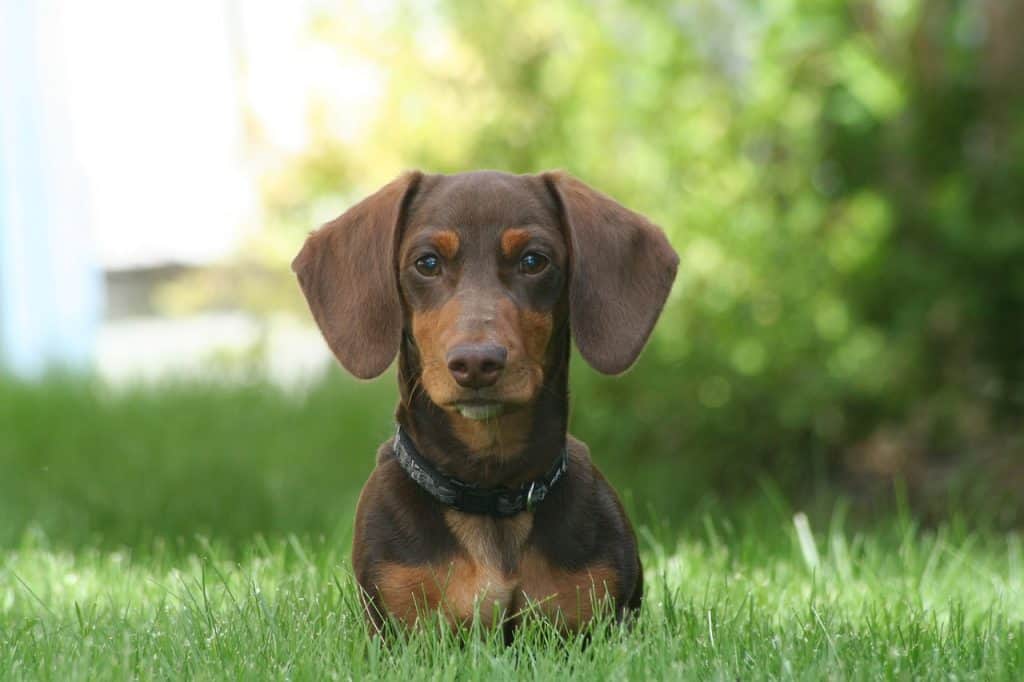
Quite probably, your cat won’t even bat an eye when you introduce a small Dachshund as the new family pet. Being of similar size they can be comfortable with each other.
These dogs make excellent family companions, as they’re very friendly and affectionate with children. Although very energetic, like all hunting dogs, Dachshunds love cuddling up right next to their favorite human.
Yes, don’t be surprised if your new pup forms a stronger bond with a particular member of the family.
Final Thoughts
Those are all the best dogs for cats, at least for our list as I’m sure there are several other great dog breeds out there.
Make sure you take into consideration your lifestyle outside of just who is living in your house. Some dogs tend to need more than others so choosing one that matches your routine is ideal.
Also, be sure to create your own list of potential next dogs and do plenty of research into each one to make sure they are the perfect fit. Then, do plenty more research into finding the right breeder for you.
If you need tips on how to find a good dog breeder check out this helpful resource.
